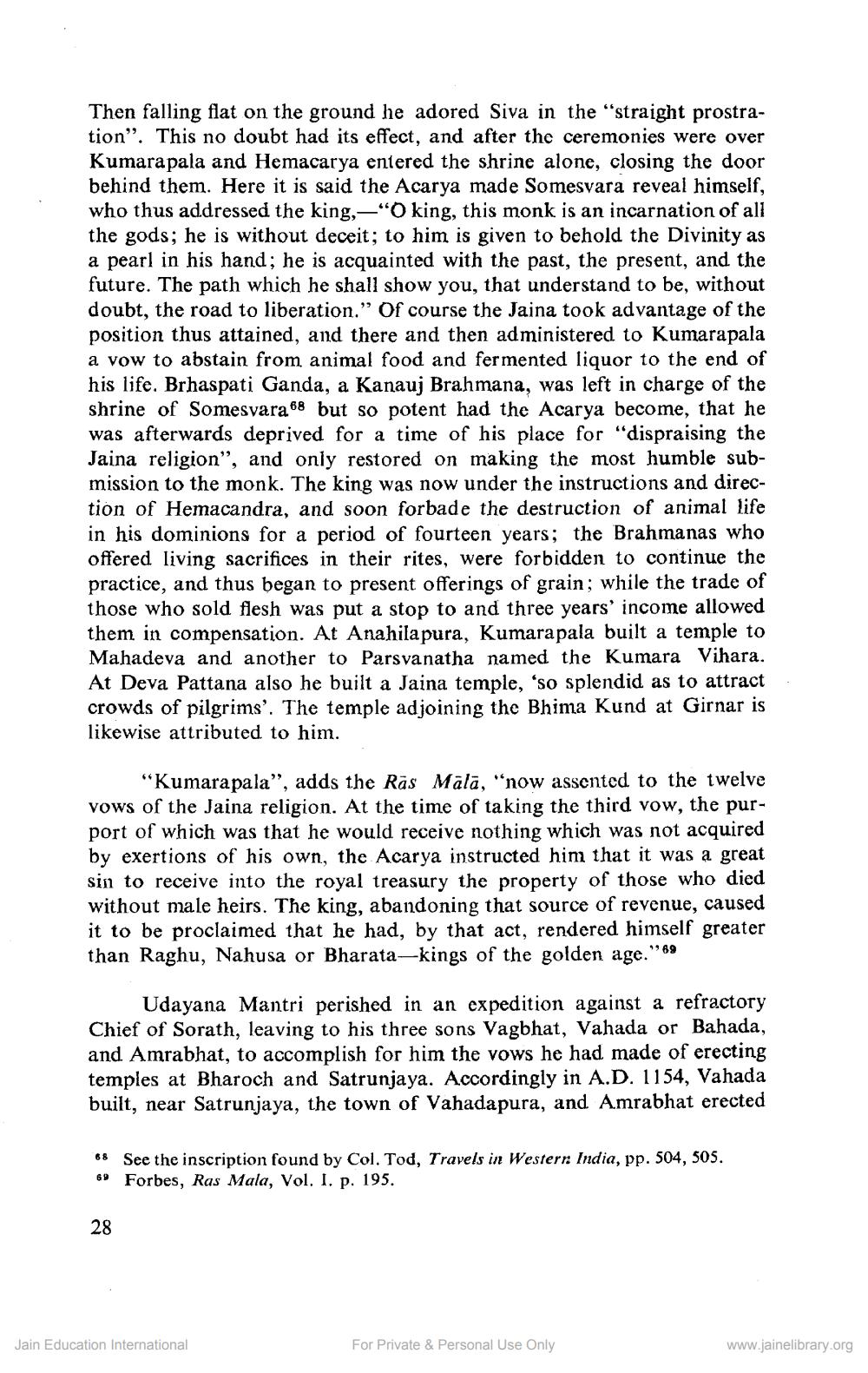________________
Then falling flat on the ground he adored Siva in the "straight prostration". This no doubt had its effect, and after the ceremonies were over Kumarapala and Hemacarya entered the shrine alone, closing the door behind them. Here it is said the Acarya made Somesvara reveal himself, who thus addressed the king,—"O king, this monk is an incarnation of all the gods; he is without deceit; to him is given to behold the Divinity as a pearl in his hand; he is acquainted with the past, the present, and the future. The path which he shall show you, that understand to be, without doubt, the road to liberation.” Of course the Jaina took advantage of the position thus attained, and there and then administered to Kumarapala a vow to abstain from animal food and fermented liquor to the end of his life. Brhaspati Ganda, a Kanauj Brahmana, was left in charge of the shrine of Somesvara 68 but so potent had the Acarya become, that he was afterwards deprived for a time of his place for "dispraising the Jaina religion", and only restored on making the most humble submission to the monk. The king was now under the instructions and direction of Hemacandra, and soon forbade the destruction of animal life in his dominions for a period of fourteen years; the Brahmanas who offered living sacrifices in their rites, were forbidden to continue the practice, and thus began to present offerings of grain; while the trade of those who sold flesh was put a stop to and three years' income allowed them in compensation. At Anahilapura, Kumarapala built a temple to
hadeva and another to Parsvanatha named the Kumara Vihara. At Deva Pattana also he built a Jaina temple, ‘so splendid as to attract crowds of pilgrims'. The temple adjoining the Bhima Kund at Girnar is likewise attributed to him.
Mahadeva a
"Kumarapala", adds the Rās Mālā, "now assented to the twelve vows of the Jaina religion. At the time of taking the third vow, the purport of which was that he would receive nothing which was not acquired by exertions of his own, the Acarya instructed him that it was a great sin to receive into the royal treasury the property of those who died without male heirs. The king, abandoning that source of revenue, caused it to be proclaimed that he had, by that act, rendered himself greater than Raghu, Nahusa or Bharata-kings of the golden age."49
Udayana Mantri perished in an expedition against a refractory Chief of Sorath, leaving to his three sons Vagbhat, Vahada or Bahada, and Amrabhat, to accomplish for him the vows he had made of erecting temples at Bharoch and Satrunjaya. Accordingly in A.D. 1154, Vahada built, near Satrunjaya, the town of Vahadapura, and Amrabhat erected
68 See the inscription found by Col. Tod, Travels in Western India, pp. 504, 505. ** Forbes, Ras Mala, Vol. I. p. 195.
Jain Education International
For Private & Personal Use Only
www.jainelibrary.org




